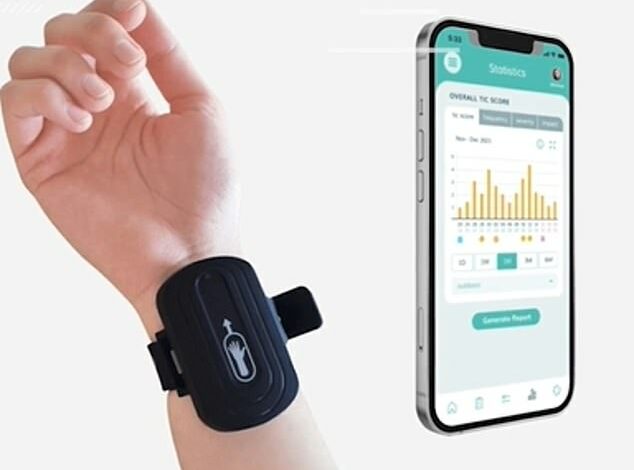‘Zapper’ that sends pulses to the wrist to target Tourette’s could be deployed on the NHS as soon as next year after successful trials




A wrist-worn ‘zapper’ that reduces symptoms of Tourette’s syndrome speech disorder could be rolled out across the NHS next year.
The device, Neupulse, sends electrical pulses to the median nerve at the bottom of the wrist to stimulate the part of the brain that causes the involuntary tics associated with the condition.
It was trialled by singer and Tourette’s sufferer Lewis Capaldi, 28, and a clinical trial of 121 British patients showed average benefit from it, with a 25 per cent reduction in tic frequency.
The severity of the tic decreased by another 35 percent with regular use for four weeks.
NHS spending watchdog the National Institute for Health and Care Excellence (NICE) says it plans to make a decision on Neupulse’s funding by April.

The device, Neupulse (pictured), sends electrical pulses to the median nerve at the bottom of the wrist to stimulate the part of the brain that causes involuntary tics.

It has been tested by singer and Tourette sufferer Lewis Capaldi (pictured at Glastonbury in 2023)

Tourette’s disease affects more than 300,000 people in Britain, causing sufferers to make sudden, uncontrolled movements or sounds (stock image)
‘Electrical stimulation at the wrist is easy to administer and does not require large, expensive equipment,’ Dr Katherine Dyke, assistant professor of psychology at the University of Nottingham, told Medscape News UK. ‘This enables the development of wearable devices that individuals can use without clinical support.’
Tourette’s disease affects more than 300,000 people in Britain, causing sufferers to make sudden, uncontrolled movements or noises.
It usually occurs in children between the ages of two and fifteen, with symptoms often resolving during adolescence and early adulthood.
Behavioral therapy, where patients talk to a specialist about ways to manage symptoms, can help, but research shows that only a fifth of young patients are offered this treatment. There are medications available that reduce the number of symptoms but have side effects, including depression, weight gain and tremors.
NICE also decides whether an online therapy is approved.
A 2021 study found that 10 weeks of online prevention therapy – in which patients learn how to suppress tics and tolerate the urge to tic – significantly reduced symptoms in young people.




